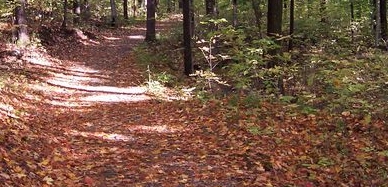Herbs have been used in traditional folk medicine of many cultures since the dawn of time to treat various hair conditions. Admittedly, traditional remedies have not always been successful in treating baldness and to this day no ultimate herbal or medicinal cure for genetically-determined hair loss conditions exists. Nonetheless, herbal remedies have experienced an immense revival in popularity recently and now account for over 50% of all hair loss products sold. This revival came with the discovery of the true cause of hereditary baldness, now believed to be dihydrotestosterone (DHT) attacking hair follicles and the arrival of finasteride, which is capable of blocking the conversion of testosterone into DHT. Finasteride is a drug that had been used for some time prior to the discovery of its hair growth-promoting properties to treat benign prostatic hyperplasia (BPH), also called prostate enlargement. Following this discovery, herbalists started looking for possible natural alternatives to finasteride among plants that have been traditionally used to treat urinary problems and specifically enlarged prostates.
Saw palmetto has been used for decades to treat prostate enlargement and it is one of the few plants used in natural remedies that have been subjected to some scientific research in regards to examining their potential for treating BPH. Its supporters assume that it works by inhibiting the conversion of testosterone into prostate and follicle-harming DHT but no research has yet confirmed this assumption. Some studies suggest that saw palmetto works by a different mode of action to finasteride, and does not affect the levels of DHT. However, the most recent research results revealed that saw palmetto might not be effective in treating BPH at all. No clinical research has ever been conducted on saw palmetto's effects on hair loss. All of its potential hair benefits are derived from the assumption that if it is effective in treating BPH, it must be also effective in treating genetically determined hair loss. Saw palmetto is widely used by thousands of hair loss sufferers around the world and it is sometimes blamed for causing side effects similar to those attributed to finasteride and therefore it should not be used by pregnant or breast-feeding women or by children.
Extract from the bark of the evergreen tree pygeum africanum is another popular herbal active substance found in natural hair loss treatments and many herbalists believe it is more potent in treating baldness than saw palmetto. Its rise to fame also comes from the general assumption that this plant, thought to be effective in treating prostate enlargement, must be also beneficial in treating hair loss. Pygeum africanum has been less well studied than saw palmetto and nothing is known about the possible mechanism affecting the prostate, let alone about its impact on hair. It has never been used in any clinical hair loss study. Its inclusion in herbal hair loss remedies rests on the assumption that it is a natural DHT inhibitor. For those who want to try a natural DHT blocker, pygeum africanum appears to be a safer option than saw palmetto due to its lower health risk profile.
The third most popular herbal active ingredient used in natural hair loss cures is nettle root extract. This herbal drug is derived from the root of the stinging nettle, a popular healing plant native in temperate and subtropical zones of the northern hemisphere. Its inclusion in natural hair loss remedies also stems from the fact that it is supposed to help shrink enlarged prostates and is thus believed to inhibit the conversion of testosterone into DHT. Studies have shown that nettle root is more effective in relieving the symptoms of BPH when used in combination with pygeum africanum than when used alone, but its mode of action remains unknown. Nettle has never been used in any clinical hair loss study. Caution is advised to patients using nettle root extract since the whole plant is known to be allergenic to a lot of people. Other than that it appears relatively safe as it has been used for centuries in many parts of the world as a vegetable and has been often compared to spinach in terms of its nutritional value.
Other popular herbs frequently used in natural hair loss treatments include ginkgo biloba, Siberian ginseng (eleuthero root), Asian ginseng, gotu kola, green tea, pumpkin seed oil, rosemary, chamomile, horsetail, etc. These herbs are supposed to act by different modes of action, such as by improving the blood circulation in the scalp, fighting small inflammations and fungal infections in the scalp or providing vital nutrients to the hair follicles. Although all of these plants possess properties extensively utilized in traditional folk medicine, none of them has ever been clinically tested for treating hair loss. No scientific evidence exists that any herb, vitamin, mineral or nutrient contained in the natural remedies promotes new hair growth. Whether you decide to try a commercial herbal product or just one or two herbs on their own, keep in mind that besides there being no guarantee of their effectiveness, no daily dosage has been established and side effects might occur despite the general belief that herbal hair loss remedies are safe and free of them.
By Dody Gasparik MSc.
All rights reserved. Any reproducing of this article must have the author name and all the links intact.






